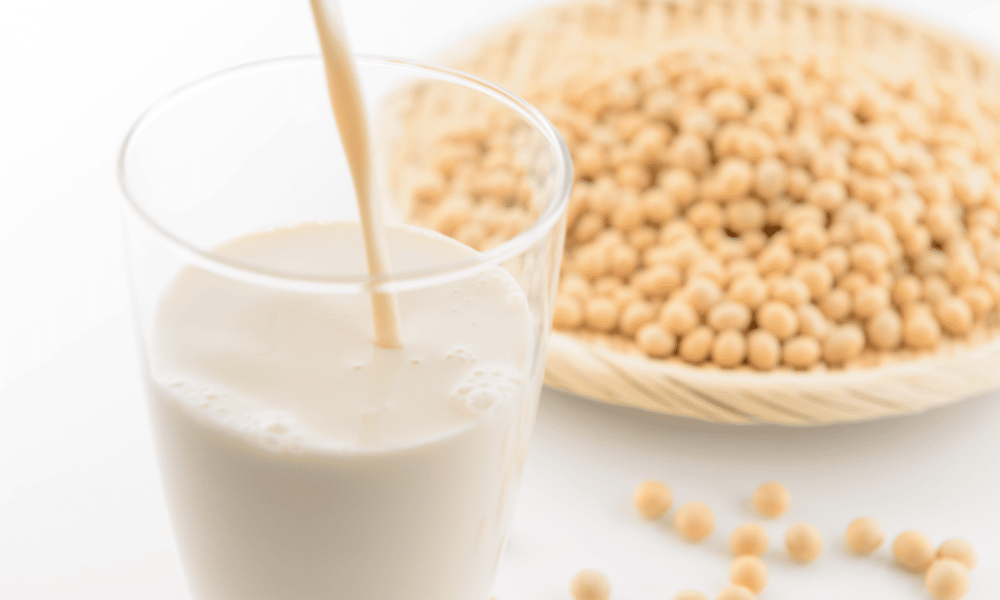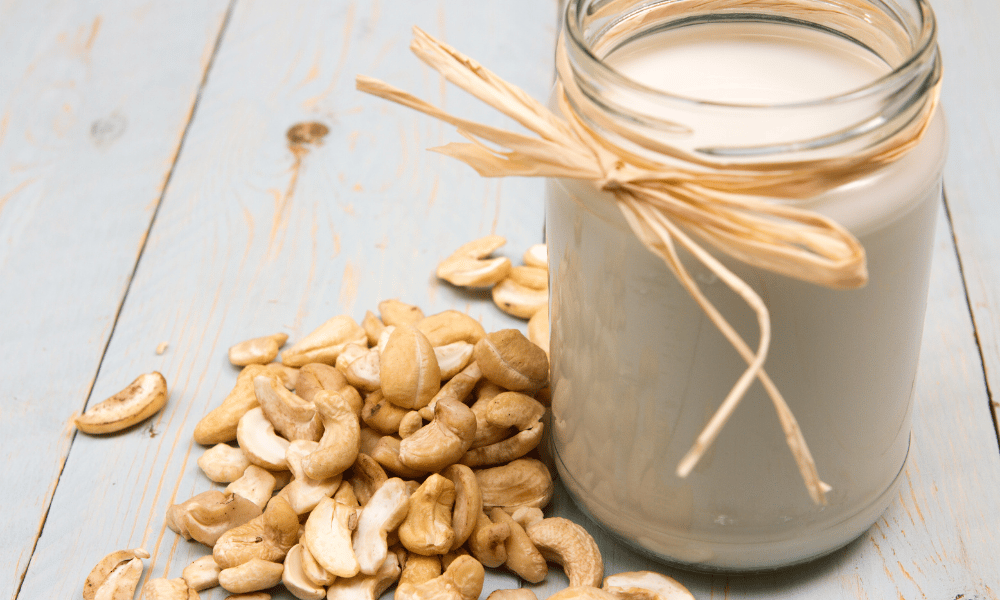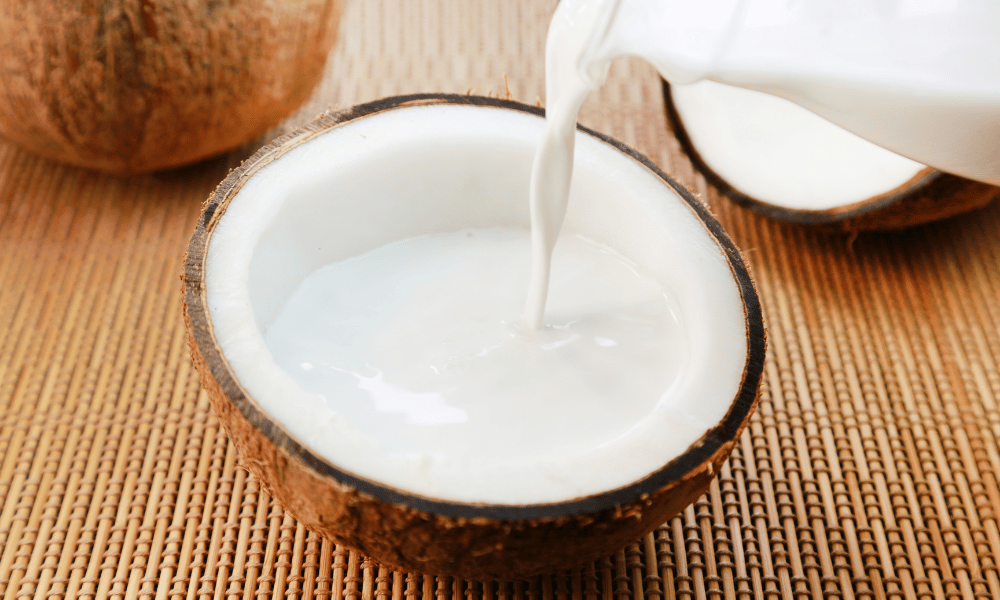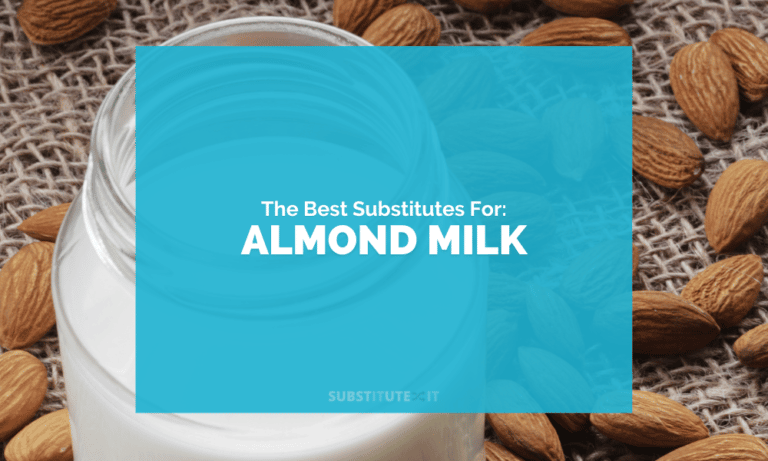Almond milk has become one of the most popular dairy alternatives in the past 3 or so years, creating a sort of cultural phenomenon in coffee shops and online. In 2020 it was named the most popular plant-based milk in the US, with similar figures in the UK.
What started off as a dairy-free option for anyone wanting to enjoy a takeaway hot drink is now highly demanded by those who choose to try something new or are sick of regular milk.
Even before its popularity, almond milk was much more expensive than dairy milk because it is a plant-based alternative. Now, supermarkets are constantly running out of almond milk, and many charge ridiculous prices simply because they can. So why not try a cheaper alternative?
Our 4 Substitutes for Almond Milk
The main ingredient in almond milk is almonds, making milk taste extremely nutty. However, the milk lacks the bitterness of other almond products.
You can buy almond milk as either sweetened or unsweetened as well as combined with cocoa and other flavourings.
Because of its manufacturing process, almond milk is noticeably thinner and more watery than dairy milk. This makes it the perfect tool for sweet and savoury recipes when a sauce or mixture is too thick.
Here are our top 4 substitutes for almond milk:
1) Soy Milk
Not only is soy milk a plant-based dairy alternative, but it is also a nut-free alternative.
Soy milk is made using soybeans which are a high protein, low-fat food. This makes soy milk slightly thicker than almond milk and much healthier – so long as you buy the unsweetened version.
However, soy milk may be the healthier choice over almond milk, but its unsweetened taste is difficult to palate for most people.
The added sweeteners in the sweetened version of soy milk cut through the slightly bitter and gone-off flavour of the soybeans and make it much more delicious. Sweetened soy milk is much less healthy and sweeter than unsweetened almond milk.
Is Soy Milk Commonly Used In Coffee Shops?
Soy milk is the second most popular plant-based milk in the UK. Unless a coffee shop offers no dairy alternatives at all, they will most likely use soy milk alongside almond milk. Rest assured that most commercial coffee shops use soy milk.

2) Oat Milk
The extra carbs of oat milk make it resemble cow’s milk. So if you are searching for plant-based milk that can replicate the texture of cow’s milk better than almond milk, then oats milk is the best choice.
In terms of flavour, oat milk is less like almond milk and more like cow’s milk, which is why many people prefer it. The process of making oat milk releases all the natural sugars of the oats, creating a sweeter milk.
Oat milk does not have the nutty taste of almond milk or the same texture, but it can be used in the same recipes and will often produce better results.
Is Oat Milk Thicker Than Almond Milk?
Because oats are a carbohydrate, their resulting milk is creamier than almond milk, but is noticeably thicker.

3) Cashew Milk
As raw nuts, cashews are far creamier and smoother than almonds, which affects the texture of cashew milk. The milk is even creamier than dairy milk.
But despite the richness of cashew milk, its flavour is still very light and distinctly nutty. Some sweeteners are typically added to cashew milk, which makes the milk slightly sweeter than almond milk, though not overwhelmingly so.
Make Your Own Cashew Milk
Cashew milk is perhaps the easiest plant-based milk to make at home. Simply blend a fair amount of cashews with a little water and a drizzle of honey and blend until smooth. Then add water to thin out to your desired texture.

4) Coconut Milk
Like almond milk has a distinct almond taste, coconut milk has a prevalent coconut taste that is much more powerful than the almond’s taste.
This means that coconut milk is not the best option for your drink or for use in cereal unless you love the flavour of coconut. It will quickly overpower every other flavour and will ruin your morning coffee. Even if you include it in a smoothie, raw coconut milk will be too strong.
However, when you include coconut milk in a baked or cooked dish, the intense coconut flavour mellows out considerably and prevents it from overwhelming the rest of your dish.
Unless you love the taste of coconut, only use coconut milk to replace almond milk in recipes that require cooking.
Can You Substitute Coconut Milk for Coconut Water?
Coconut water is not creamy in the slightest. While you could use it to recreate the nutty flavour of almond milk, the texture will be completely different.

Other Substitutes for Almond Milk
The main appeal of almond milk is its very nutty flavour, which some of the above substitutes lack. For some people, this lack of nuttiness is exactly what they want, but if you are looking for an almond milk substitute that still has a distinct nutty taste, here are a few more nut-based milks:
- Hazelnut Milk – Far sweeter than almond milk, hazelnut milk is reminiscent of Nutella with its creamy texture. Hazelnut-flavoured syrups are already used often in coffee shops. It is a flavour that pairs well with many hot drink combinations.
- Walnut Milk – Harder to find than almond milk, walnut milk has a milder nutty taste than almond milk. It is a very thick milk but can be thinned down if needed to better match the texture of almond milk.
Summary
Almond milk is by far the most popular plant-based milk in the UK. However, plenty of people still dislike its extreme nutty taste or watery texture. Other plant-based milks, like soy milk, better resemble cow’s milk. In contrast, cashew milk has an obvious nutty flavour similar to almond milk.
